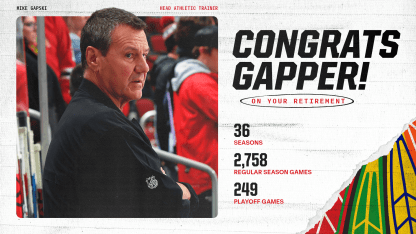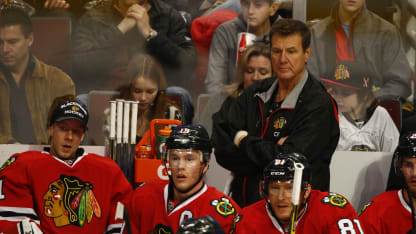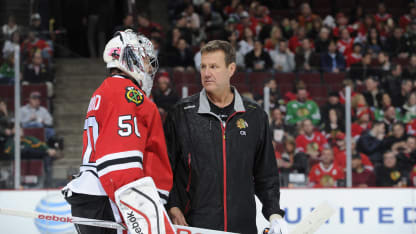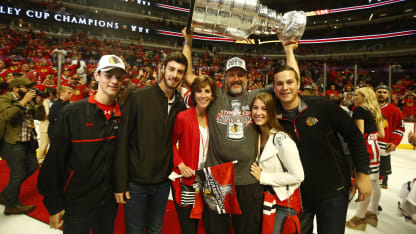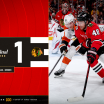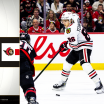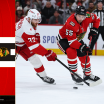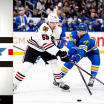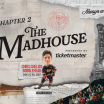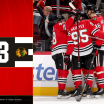When he first joined the team in 1987 coming out of the University of Illinois Chicago, Gapski began with a roster featuring names like Troy Murray and Denis Savard to kick off his career. From there he watched the team rise to a preeminent franchise of the early '90s with a trip to the 1992 Stanley Cup Final, then go through a full rebuild and climb to new heights with three Stanley Cups in the 2010s, watching the entire careers of franchise names players like Patrick Kane and Jonathan Toews.
"We built all those kids that came in and were drafted by us," Gapski said. "So, I was with them from day one. Some of those guys were here longer than they weren't. It was fun to see them grow and develop."
Murray was one of the first players he ever worked with when he started his Blackhawks career and continued to work with him for seven seasons.
One of the most important things that the former forward and current Blackhawks color analyst enjoyed the most about Gapski is his ability to form strong bonds with his players. Whether it was in the training room or a night out on the road, Gapski helped spark great chemistry within the team.
"We've spent a lot of time together," Murray said. "Back in the day, we would spend a lot of time on the road together as a group and Gapper would be always there. He was always a part of our guys. We appreciated what he did, and I don't think that anybody that has gone through the Blackhawks organization can say a bad word about Mike Gapski."
As for Savard, he worked with the head athletic trainer as both a player and as the head coach. While working with him through different parts of his career, he noted that the trainer always remained the same despite the changes in position.
The former Blackhawks captain described Gapski as a person who brought a good balance to the team. He knew how to create great relationships with the players he worked with but also knew when to be serious when it can time to take them off the ice and focus on their injuries instead.
"He would dictate, and we'd respect his opinion, if they skated or not," Savard said. "If he didn't feel like they shouldn't be on the ice and they should be in treatment, there was no argument about that because he was good at what he did."
